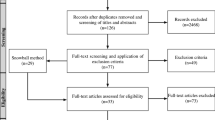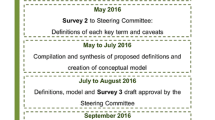Abstract
Recent years have witnessed a growing volume of papers describing the use of GPS technology and other tracking technologies for obtaining data on time–space activities. These methods have several advantages over traditional methods of time–space data collection in terms of accuracy, resolution and length of the possible data collection period. However, to date, no work has been done on the compliance rates among participants and the resulting validity of the collected data. This paper presents a method that combines the use of a GPS receiver with Radio Frequency Identification (RFID) technology that was implemented in research on time–space activities of elderly persons with cognitive impairment. The method presented in this paper enables monitoring the level of compliance of the participants during their participation in the study and presents a unique opportunity to examine the extent to which participants in a GPS based study are able to comply with study requirements. Healthy older adults and those with cognitive decline were found to be generally compliant with a complex study protocol. These results serve as another step into the acceptance of GPS based studies as a valid methodology for mobility data collection.




Similar content being viewed by others
References
Anderson, J.: Space-time budgets and activity studies in urban geography and planning. Environ. Plan. A 3(4), 353–368 (1971)
Axhausen, K., Zimmermann, A., Schönfelder, S., Rindsfüser, G., Haupt, T.: Observing the rhythms of daily life: a six-week travel diary. Transportation 29, 95–124 (2002)
Axhausen, K.W., Löchl, M., Schlich, R., Buhl, T., Widmer, P.: Fatigue in long duration surveys. Transportation 34(2), 143–160 (2007)
Bricka, S.G., Sen, S., Paleti, R., Bhat, C.R.: An analysis of the factors influencing differences in survey-reported and GPS-recorded trips. Transp. Res. Part C 21(1), 67–88 (2012)
Elgethun, K., Fenske, R.A., Yost, M.G., Palcisko, G.J.: Time-location analysis for exposure assessment studies of children using a novel global positioning system instrument. Environ. Health Perspect. 111, 115–122 (2003)
Gauthier, S., Reisberg, B., Zaudig, M., Petersen, R.C., Ritchie, K., Broich, K., et al.: Mild cognitive impairment. Lancet 367, 1262–1270 (2006)
Goodchild, M.F., Janelle, D.G.: The city around the clock: space-time patterns of urban ecological structure (Halifax, Canada). Environ. Plan. A 16, 807–820 (1984)
Hanson, S., Hanson, P.: The activity patterns of urban residents: dimensions and relationships to sociodemographic characteristics. Econ. Geogr. 57, 332–347 (1981)
Janelle, D.G., Goodchild, M.F., Klinkenberg, K.: Space-time diaries and travel characteristics for different levels of respondent aggregation. Environ. Plan. A 20(7), 891–906 (1988)
Le Faucheur, A., Abraham, P., Jaquinandi, V., Bouyé, P., Saumet, J. L., Noury-Desvaux, B.: Measurement of walking distance and speed in patients with peripheral arterial disease. Circ.: J. Am. Heart Assoc., 117, 897–904 (2008)
Macket, R., Brown, B., Gong, Y., Kitazawa, K., Paskins, J.: Children’s independent movement in the local environment. Built Environ. 33(4), 454–468 (2007)
Madre, J.-L., Axhausen, K.W., Brög, W.: Immobility in travel diary surveys. Transportation 34(1), 107–128 (2007)
Miskelly, F.: A novel system of electronic tagging in patients with dementia and wandering. Age Ageing 33(3), 304–306 (2004)
Miskelly, F.: Electronic tracking of patients with dementia and wandering using mobile phone technology. Age Ageing 34(5), 497–499 (2005)
Oliveira, M., Vovsha, P., Wolf, J., Birotker, Y., Givon, D., Paasche, J.: GPS-assisted prompted recall household travel survey to support development of advanced travel model in Jerusalem, Israel. Transp. Res. Rec. 2246, 16–23 (2011)
Phillips, M.L., Hall, T.A., Esmen, N.A., Lynch, R., Johnson, D.L.: Use of global positioning system technology to track subject’s location during environmental exposure sampling. J. Expo. Anal. Environ. Epidemiol. 11, 207–215 (2001)
Shoval, N., Isaacson, M.: The application of tracking technologies to the study of pedestrian spatial behaviour. Prof. Geogr. 58(2), 172–183 (2006)
Shoval, N.: Tracking technologies and urban analysis. Cities 25(1), 21–28 (2008)
Shoval, N., Auslander, G.K., Freytag, T., Landau, R., Oswald, F., Seidl, U., Wahl, H.-W., Werner, S., Heinik, J.: The use of advanced tracking technologies for the analysis of mobility in Alzheimer’s disease and related cognitive diseases. BMC Geriatr. 8, 7 (2008)
Shoval, N., Kwan, M.-P., Reinau, K.H., Harder, H.: The shoemaker’s sons always goes barefoot: implementations of GPS and other tracking technologies for geographic research. Geoforum 51, 1–5 (2014)
Stopher, P., Shen, L.: In-depth comparison of global positioning system and diary records. Transp. Res. Rec.: J. Transp. Res. Board 2246, 32–37 (2011)
Terrier, P., Schutz, Y.: How useful is satellite positioning system (GPS) to track gait parameters? A review. J. NeuroEng. Rehabil. 2, 28 (2005)
Thornton, P.R., Williams, A.M., Shaw, G.: Revisiting time-space diaries: an exploratory case study of tourist behaviour in Cornwall, England. Environ. Plan. A 29(10), 1847–1867 (1997)
Wiehe, S.E., Hoch, S.C., Liu, G.C., Carroll, A.E., Wilson, J.S., Fortenberry, J.D.: Adolescent travel patterns: pilot data indicating distance from home varies by time of day and day of week. J. Adolesc. Health 42(4), 418–420 (2008)
Wolf, J.: Using GPS Data loggers to replace travel diaries in collection of travel data. Dissertation, Georgia Institute of Technology, School of Civil and Environmental Engineering, Atlanta, Georgia (2000)
Wolf, J.: Applications of new technologies in travel surveys. In: Stopher, P., Stecher, C. (eds.) Travel Survey Methods: Quality and Future Directions, pp. 531–544. Elsevier, Oxford (2006)
Xia, J., Arrowsmith, C., Jackson, M., Cartwright, W.: The wayfinding process relationship between decision-making and landmark utility. Tour. Manag. 29, 445–457 (2008)
Acknowledgments
Support for this project provided by the German Federal Ministry of Education and Research (BMBF) within the framework of German-Israeli Project Cooperation (DIP) is gratefully acknowledged. Three reviewers provided valuable input on an earlier version of the paper. However, the authors are solely responsible for any errors and mistakes.
Author information
Authors and Affiliations
Corresponding author
Rights and permissions
About this article
Cite this article
Isaacson, M., Shoval, N., Wahl, HW. et al. Compliance and data quality in GPS-based studies. Transportation 43, 25–36 (2016). https://doi.org/10.1007/s11116-014-9560-3
Published:
Issue Date:
DOI: https://doi.org/10.1007/s11116-014-9560-3




